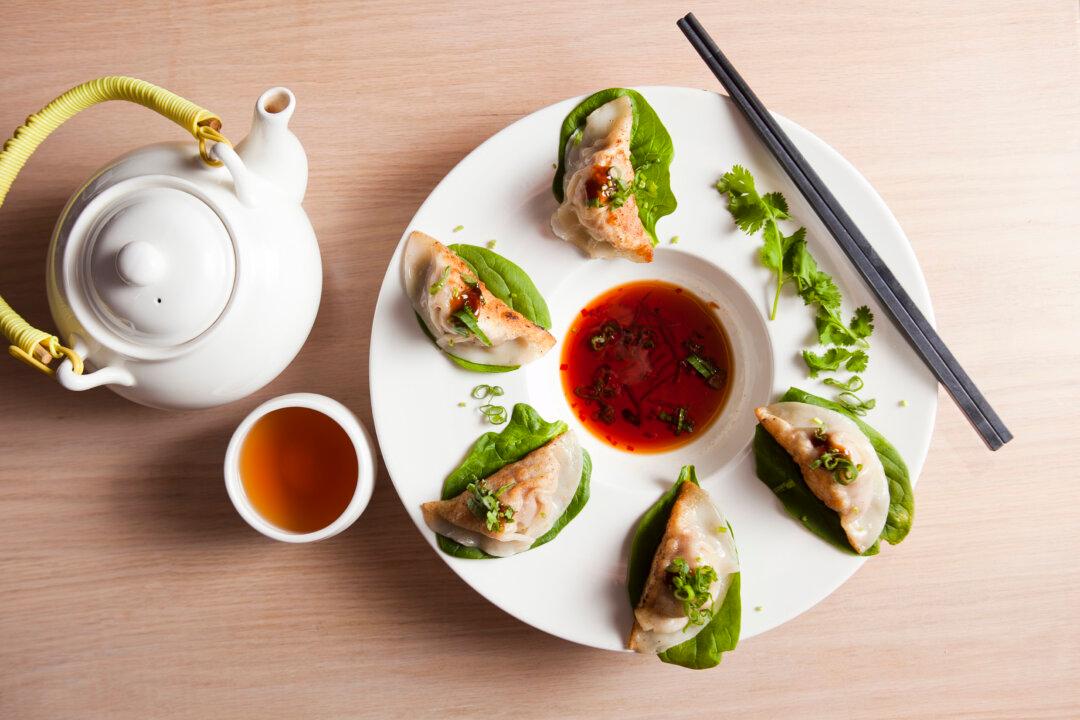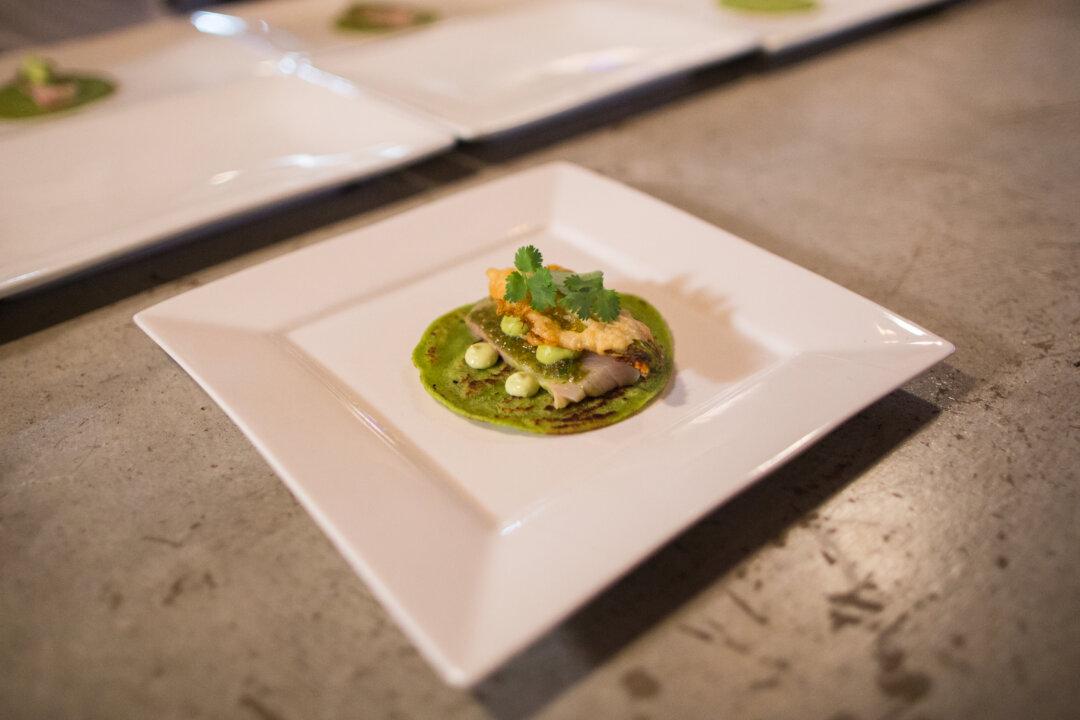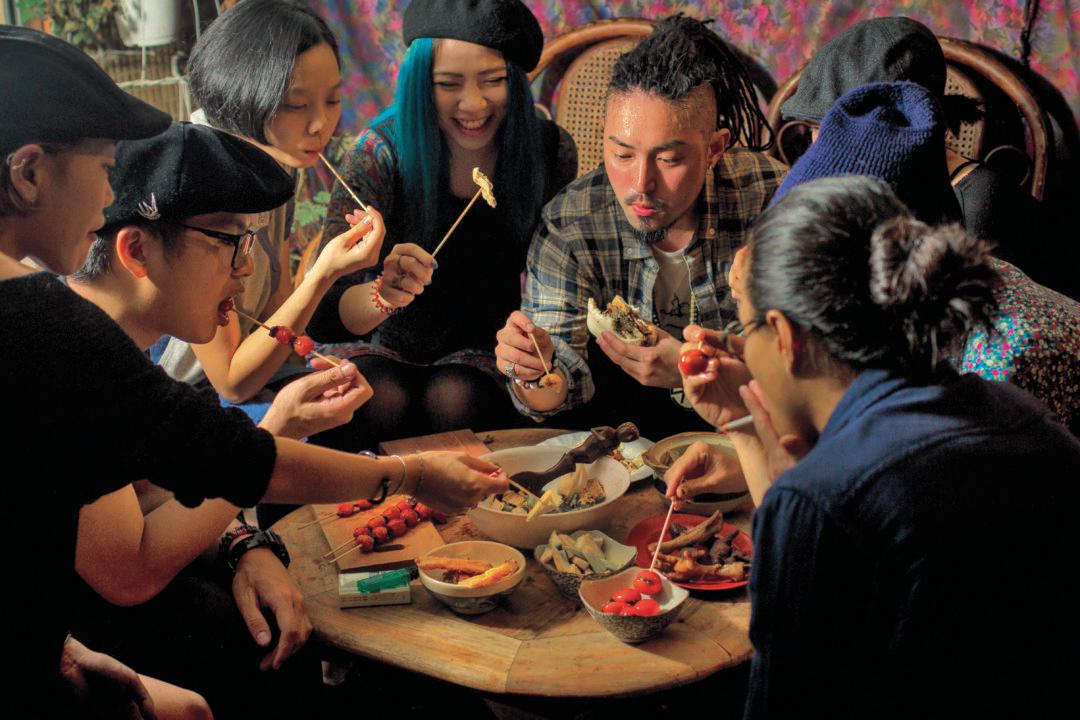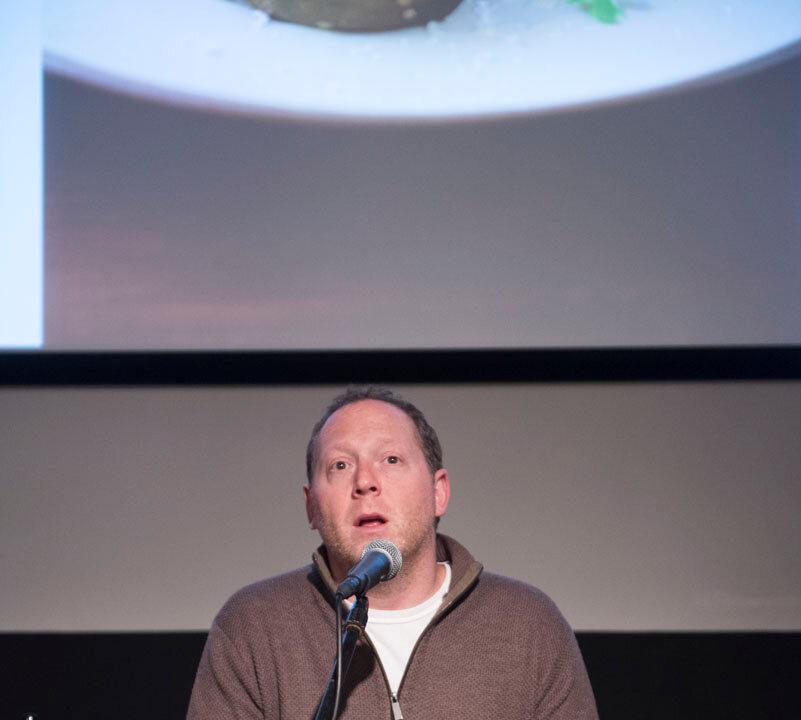Forget the dragon and the phoenix, the red lanterns, and the aquarium, the surliness, and the styrofoam containers of syrupy glop. Uncle Ted’s is ushering Chinese restaurants into a new era—at least I can only hope others will follow suit.
For too long, a cuisine that is millennia-old has mostly been in the realm of cheap food, inexpensive ingredients, represented by mediocrity at best in either food, service, or both.
Uncle Ted’s, which opened in June and is located by NYU, endeavors to differentiate itself from your run-of-the-mill Chinese restaurant and it manages to do that, while keeping its prices moderate.
The cuisine is surprising, partly because you expect one thing and get another; but also, because the simplicity of the ingredients yields such delicious results.
Owner Ted Chang (the Ted behind the name) believes in cooking simply but correctly. “We try to do simple dishes in a traditional, right way. You have to cook the right way, not like most takeout factories. The ingredients have to be fresh.”
Amping Up Taste
Take the shrimp and mixed vegetables dish ($16) whose name alone is quite plain. Yet it’s far from that. The curly, pink shrimp are plump and juicy, and mushrooms tender, the carrots sweet with a pleasant crunchiness, and the asparagus—well the asparagus gave me a je-ne-sais-quoi moment, because I realized that I had only had them steamed, never sauteed in a wok. And it was a revelation: green, sweet, crunchy.
Each of the ingredients tasted like a better, marvelous version of itself. All together they made the dish eminently satisfying.
Shrimp, Chang said, are sometimes cooked beyond recognition. “They bread them so much, you don’t even smell the original scent of the food,” he said. “When you have a shrimp it has to smell like a shrimp. Otherwise it’s not right.”
The modern twist on these dishes, most of which are recognizable Chinese restaurant dishes, lies in the lighter hand, healthier take, and beautiful plating—but without sacrificing traditional technique, or authentic ingredients and flavors.
The executive chef, Zhou Guang Zan, previously opened two locations of China White, one in Purchase, N.Y., the other in Greenwich, Conn., for the cb5 restaurant group, after a three-year stint at TAO, where he was the wok sous-chef.
He’s 38, but has been cooking since the age of 15, inspired by his chef father. A pursuit of perfection animates him when he talks about his cooking; he is punctilious about technique.
With the shrimp and vegetables dish, he says one key is to season well. The other is to have the wok very, very hot when the ingredients go in.
And finally, he said, a well-executed dish should exude inviting aromas.
Indeed, as Chang mentioned before him, as dishes come out, before you even taste them, the scents should be enticing.
Zhou said he keeps the number of ingredients limited on purpose, “just everything at its best.” By doing so he’s able to get fresh ingredients all the time and save the restaurant money. Meanwhile the dish is not overwhelmed by a lot of ingredients.
Uncle Ted’s Fried Rice ($11), as simple as they come, is nevertheless super tasty. The rice is cooked with a purée of scallions, giving it a lovely green hue and lending a spicy kick that hits you gently in the back of the throat, and topped with an egg and delicate, thin flakes of fried shallots. I’ve never seen this anywhere else.
Dumplings to Die For
Zhou only started working at Uncle Ted’s on Jan. 1, but has been busy cooking up specials, which are soon to land on the menu.
He’s also an expert on dumplings, and was making a version of pork and bok choi filling when I was there. He dabs the top with hoisin sauce and minced scallion, and serves them beautifully plated with a light soy sauce. They are, without question, expertly homemade, with a thin skin, which is more difficult to handle. Yet he puts a lot of care making sure they all look uniform, unlike the messy wontons or dumplings he said you'll find in Chinatown, of different shapes and sizes.
Here too he pays attention to make sure their aroma comes through. “We eat with our eyes first, and nose, and then it goes into your mouth,” he said.
He pan fries the dumplings and gives the flat bottom a golden crispiness; and the result, bursting in my mouth, was enough to make me want to try every last dumpling on the menu, from the watercress to the braised duck dumpling (5 for $5).
Dim sum can be ordered all day long here, made by two in-house dim sum cooks, a sign of seriously good dim sum. (Most places that don’t specialize in them will source them from elsewhere.)
Manager Calvin Cheng swears by these with beer for Sunday football, which customers can watch at the bar.
Zhou also served another of his special creations. Soup spoons were lined up with delicate, refreshing pieces of tofu, topped with a thin slice of water chestnut, and topped with ginger, garlic, parsley, scallion, green onion, fish sauce (tofu bites, $7).
For a touch of spicy, there’s also dan-dan noodles ($7), a dish topped with a spicy meat ragu (it does look like an Italian spaghetti, if I can be forgiven a cultural reference from thousands of miles away). It’s not as fiery as the Szechuan restaurants in town that I’ve been to—in fact, nothing here is extremely spicy. That may have to do with the clientele, who tends to skew toward healthier, lighter fare; and the Cantonese inflections—well-seasoned, but with a focus on the fresh, primary ingredients, without masking them in spices.
There’s also a create-your-own-healthy-menu, that you can customize with your chosen vegetables, sauce, and protein ($11, extra with meat or seafood). Beyond the usual vegetables, Chinese broccoli, woodear mushrooms, black mushrooms, and baby bok choi are available.
Other unusual, creative twists on vegetables: okra and eggplant in garlic sauce ($11), cauliflower in chili sauce ($10), Brussels sprouts in teriyaki sauce ($11).
The highest priced items are a steamed Chilean seabass, Cantonese style, or the lobster with ginger and scallion (each $25). Uncle Ted’s is in a college neighborhood, which helps to keep prices down. In general, main dishes hover around $11–$16.
Feedback
Zhou is constantly asking how people are liking dishes, and when he’s on break, sketching out in his head how dishes that he doesn’t like can be improved. “Communication from the front of the house is really important. At a lot of restaurants the chef has a big ego so there’s always a conflict between the back and front of the house,” he said.
For that, he relies on Cheng, who heads the front of the house and was trained at the Culinary Institute of America. Cheng, who hails from Hong Kong and Toronto, puts a lot of emphasis on service and is a serious foodie himself.
He also heads up the drinks and cocktails menu. Recently he was given a bottle of baiju (think Chinese moonshine, he said). It packs a punch, at 75 percent, so Cheng adds it sparingly to select cocktails to impart its floral scent.
It inspired the cloudy white Opium Den (baijiu, gin, lemon juice, simple syrup and lychee) and the Sun Tzu (baijiu, gin, port, ginger beer, orange) ($12 each).
Tsingtao pale lager, by virtue of being Chinese, ($6) is popular. Overall, Cheng recommends lighter beers not to overpower the food, especially in the case of seafood dishes.
A Modern Setting
Before he stepped into the restaurant business in 1985 (opening a restaurant in Springfield, N.J., which was an instant success), Chang was in the fashion business, and as such has an eye for design.
His practical side favored minimalism, but with the restaurant’s location in Greenwich Village, he wanted something more artistic and enlisted Alvarez-Brock Design (which worked on Le Cirque, among other projects).
A stylish, modern aesthetic dominates, with an airy feel, high ceilings, light wood, and plenty of space throughout. The star motif, cloth-wrapped in a Grecian-like manner, softens both the aesthetic and the acoustics. The takeout area is thoughtfully partitioned to one side, to avoid the distraction of foot traffic for diners.
https://www.youtube.com/watch?v=vKszX73tQ5E





